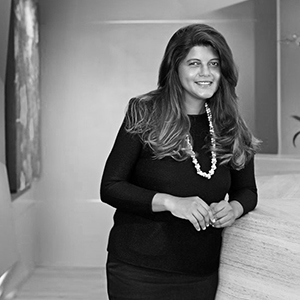Loading component...
At a glance
- According to career development professionals, the concept of a linear career path has long been a myth perpetuated by an emphasis on career planning.
- An excessive focus on mapping out a career for the long term can mean a failure to appreciate opportunities that can arise out of a career taking an unexpected turn.
- Instead, it is important to learn how to live with uncertainty and not place too much importance on setting rigid targets.
By Johanna Leggatt
Like many highly skilled professionals, Michelle Johns assumed she would steadily climb the corporate ladder and eventually arrive at the top job.
Johns set her sights on the role of CFO, but the further Johns advanced in her accounting career, the less she aspired to join the C-suite.
“I began to realise that I wasn’t excited by the notion of being a CFO,” she says. “So, I started to apply for roles internally to find out what else I was interested in and that allowed me to take on a new project.”
One such new project involved helping colleagues managing change, and it proved to be a lightbulb moment.
“I realised I loved helping people navigate change within an organisation, and I wanted to help people do this full time,” she says.
Johns knew that she would struggle to move from financial planning and analysis management to change management internally, so in 2014 she quit her job and set up a change management consultancy.
“I didn’t have a lot of fear, but everyone else was fearful for me, and they said how brave I was,” she recalls.
“I didn’t see it as courage. I just knew I had to do it, otherwise I would be comfortable – and yet unhappy – for the rest of my career.”
Unplanned career disruptions
According to Jim Bright, organisational psychologist and professor of career development at Australian Catholic University, the linear career path has long been a myth.
“The non-linearity of careers has been around forever, but no one’s ever talked about it, because there has been this obsession with career planning and where you’re going to be in five years’ time,” he says.
“But this kind of planning often fails to appreciate all of the contingencies that occur in people’s lives.”
According to Bright, who co-authored The Chaos Theory of Careers with Robert Pryor, careers routinely go “off track”.
“In the work we did in the early 2000s, we consistently found that 60 per cent to 80 per cent of people had experienced an unplanned event that significantly influenced their career,” he says.
As Bright points out, many employees are nevertheless shocked to discover that despite their “best endeavours and despite producing great products and being wonderful employees with great performance appraisals” there are often events – be they a global pandemic or company mergers – that disrupt their career plans.
“These events can profoundly change the way people work,” he says. “And that could happen very suddenly.”
Employees, for example, may be injured, which precludes them from working in their field, or they could be made redundant.
The unexpected event can also be positive, Bright notes. “It could be a chance meeting leading to a new career path and a new opportunity,” he says.
Instead of advancing up a career ladder, rung by rung, Bright sees the modern world of work as akin to a cocktail party. “If you are open to it, you can have these completely chance encounters with people, and opportunities can come from it,” he says.
Living with uncertainty

Bright believes that, in order to recognise these opportunities, employees should learn how to live with a measure of uncertainty rather than becoming too focused on goal setting and rigid targets.
“People often get stuck in jobs where they are stressed or harassed, as they do in relationships, because of a fear of uncertainty,” he says.
Rather than waiting for changes to occur, the most “career resilient people” are those who are readily and routinely testing their abilities against market demands. They are also keeping their interview skills up to scratch by attending interviews “even if they won’t necessarily take the job”.
“Sometimes, our work myths and projections are based on the idea of stability, loyalty and long-term employment, but the reality of work is that there is a lot of unpredictability,” Bright says. “The more you can support yourself, then the better off you will be.”
While Bright does believe that employer loyalty towards staff still exists, he thinks the concept of workplace loyalty can be self-defeating.
“People will come to me really broken, because they were promised an equity partnership in a business and then the owner sells because they get an offer they can’t refuse,” Bright says.
“I think a lot of employers want to do the right thing by their employees, but as events like COVID-19 show, things are not always in their control.”
Skills to cultivate in the new normal
In addition to shifts in the employee mindset, Bright believes there are a number of steps that workers can take, starting with “war-gaming” exercises that map out routes through unexpected events.
“This preparation is kind of like the awkward conversations you have with a bank manager when you have to assess whether you can afford the loan and what you will do if interest rates rise,” he says.
Bright also adds that it is important to map out the potential for positive unexpected events, such as an international job offer.
“That way, you end up with a collection of maps for different scenarios, so if anything does happen – negative or positive – you can whip out one of these blueprints,” he says.
Secondly, Bright recommends improving transferable skills – those that are not easily automated or replaced.
“Soft skills, such as creativity, will continue to be important in the future, and you need to be aware of the new kind of cultural expectations in the workplace,” he says.
“If you’ve been an employer in the past, you might nowadays be asked, ‘How many women have you employed in senior roles?’.”
Finally, Bright says “reaching out and connecting to other people” is critical.
“People employ people they like, and they employ people who their friends have recommended, so that is why networking is so important.”
However, he advises against being too cynical about your networking efforts – don’t just aim to meet people who are more senior than you to help you climb the ladder. Instead, be generous and collegial.
“It’s obviously harder in the pandemic to meet face to face, which is where social media becomes a great place to network, especially LinkedIn groups or even Twitter,” Bright says.
The rise of thoughtful careers
Unsurprisingly, the greatest force for change in our work lives in recent times has been the pandemic.
According to Kala Kularajah, from Malaysian global management consulting and executive search firm Egon Zehnder, the pandemic caused some employees to “hit the reset button”.
“We are now hearing this term ‘core purpose’, especially among younger people, and they want to know what their purpose is at work,” she says. “I do believe that people have become a lot more thoughtful about what they do and how they plan their career.”
Kularajah also predicts a rise in gig contractor roles among highly paid professionals who choose to move from contract to contract for greater professional freedom.

“They may take a contract for a few months, and then take a couple of months off to travel, go hiking or learn a new skill,” she says. “So, they really value their time.”
Traditionally, these workers have been perceived as not knowing what they want from their careers, but Kularajah sees this changing.
“I think there will be a reverse of that belief, as companies really value these workers for what they are – people who are brave and able to take risks, as well as being committed and responsible,” she says.
Kularajah has also noticed quite a few professionals considering early retirement.
“They are not so much interested in retiring to play golf and drink coffee, but to go and do something else entirely,” she says.
“Employees are also wanting to try a completely different field or industry – they are taking huge risks, such as launching a start-up. It’s interesting times.”
Johns certainly fits the role of this new breed of highly versatile, curious and flexible worker. While she still runs her change management consultancy under her brand Larsen C, she has found that her business “naturally evolved” during the pandemic, and she now offers leadership coaching for women entrepreneurs.
Johns credits her former career as an accountant for giving her the courage as well as an edge in her new businesses. “It gave me a niche, because clients loved that I was a change management specialist with an accounting background,” she says.
“It also helped me go out on my own, because when it came to running the numbers in a business, I thought to myself, ‘I know how to do this!’.”
CPA Australia resource
Think sideways to reach the top
Finance professionals who want to be in demand and at the top of their game should make strategic sideways moves into marketing, sales and operations, says Malaysia-based consultant Kala Kularajah.
“Clients are no longer interested if the CFO has only grown their career in the finance track,” Kularajah says. “The most sought-after CFOs are those who have done some sideways move, either into marketing, or operations or any other part of the organisation.”
However, these moves must be made mid-career, when employees are more senior and capable of developing a unique perspective about the business.
“Employers want a business CFO rather than a finance CFO, and by that I mean somebody who has a wider perspective outside of the financial in the way they approach making business decisions,” Kularajah says.
Her personal preference is for CFOs with a marketing background. “Marketing skills have become really critical, because it’s so competitive these days,” she says. “You constantly have to understand who your customers are and what your business model is.”
The more cross-industry experience you have, the more versatile you become. “For example, if you are in FMCG [fast-moving consumer goods], then you should also start to look at other finance roles in other types of industries, such as technology, healthcare or banking,” Kularajah says.
However, it’s important that versatility and breadth of experience do not come at the cost of depth.
“You have got to try and build both, because that is what employers are really looking for these days,” she says.
Employers want someone who is able to dive deep and look at an issue at a very granular level, as well as being able to telescope out and take a more strategic view.
“People who are high performers are able to do both,” she says.

